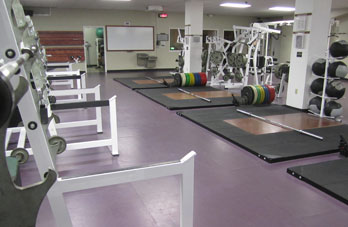
by Gunnar Eng | Sep 29, 2021 | News Slider, Sports
While attending games at Lipscomb, fans can witness the direct impact of the coaches, as they get timeouts at crucial moments and as they call plays. What spectators don’t witness is what goes on behind the scenes to get a team ready to succeed. One crucial element in game prep is the strength and conditioning coaching that is necessary for players to stay in shape and healthy. “Our main goal and focus is to keep the athletes healthy,” said assistant strength coach Sean Johnson. “We want to make all of the athletes at Lipscomb better at their sport by making them stronger, and keeping conditioning up to par.” Though strength and conditioning are pivotal during the season, it takes a front-row seat in the athlete’s training during the off-season. John Hudy, Lipscomb’s head strength coach, said that while some athletes build muscle during the season, most muscle and stamina gains happen when the sport is not in season. “As soon as the season ends, we start training immediately,” said Hudy. “We can really build strength and stamina during those times not dedicated to games, and build for the upcoming season.” Most athletes are full-time students, while also having to attend practices daily and games at least weekly, or even more often. In the offseason, though, is when the training broadens. “Especially in season, players will get turned off to lifting weights, because they believe it’ll make them sore or have ‘heavy legs,’” said Johnson. “But we let them know that’s not our goal; we know that consistently training with us will help them recover faster and stay healthy.” While...
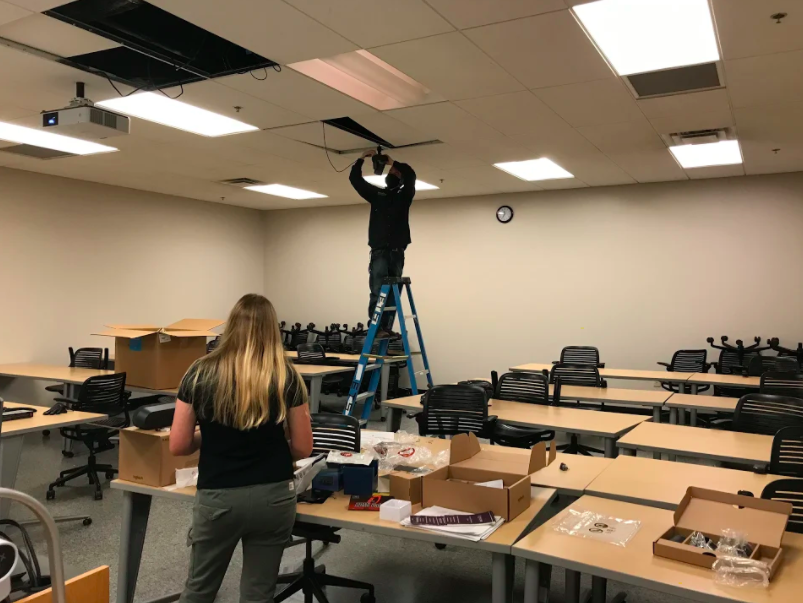
by Gunnar Eng | Aug 10, 2020 | News, News Slider
Lipscomb is responding to the COVID pandemic by instituting LipscombFLEX, a classroom model that will accommodate health protocols and still allow students and faculty to interact. “The goal of the LipscombFLEX method is that students should receive an equivalent experience whether they are physically in the classroom or learning online,” said Andy Borchers, Lipscomb University professor and coordinator for fall classroom accommodations. LipscombFLEX will use video conferencing, new cameras, microphones, and online platforms to allow faculty to teach both students in the classroom and remotely online. Instruction has the option to be either all at the same class time or in asynchronous methods such as online written discussion groups or collaborative web platforms. “The new LipscombFLEX model essentially has every professor preparing for face-to-face class, but also fully preparing to be remote and online if they need to be,” said Lipscomb President Randy Lowry. Borchers describes a three-part plan for applying this modified Hyflex (short for “hybrid’’ and ‘‘flexible’’) model in education for the fall semester. “First, we inventoried all of the classrooms, to see how many students we could seat following the 6-feet limitations, which came out to about 30 percent to 50 percent capacity,” said Borchers. “Then we identified 40 classrooms across the campus that are going to receive a ‘Zoom Room’ installation,” Borchers said. “It will mean having a camera mounted typically on the ceiling with microphones, allowing teachers a mixture of students either physically in the room or remote.” More than 60 percent of students enrolled in classes will be in one of the “Zoom Rooms’’ on campus, while the other 40 percent will be divided...
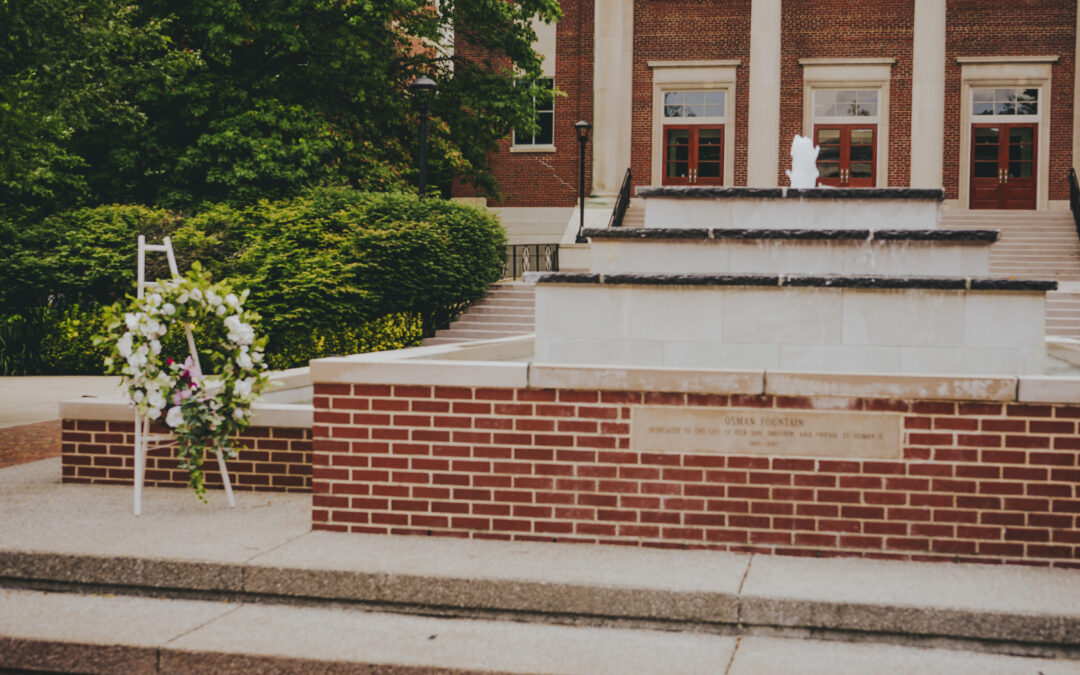
by Gunnar Eng | Jul 29, 2020 | News, News Slider
Ty Osman, called “a remarkable man” by Lipscomb President Randy Lowry, dedicated his life to helping his alma mater and the community. Osman, 54, died in a fishing accident on July 11. He was a business leader and was co-founder and president of Solomon Builders Inc., a commercial construction company. He and his wife, Nancy, are both Lipscomb graduates. “He has not only been very successful in Nashville with the Solomon Builders, but many non-profit organizations as well, and they’re actually the builders for our huge addition to Lipscomb Academy down on Harding and Granny White,” Lowry told Lumination. The Osmans’ most visible — to students, anyway — contribution to the university is the mosaic fountain on central campus that was dedicated to the memory of their son, Ty Osman II who died at age 18 on March 3, 2012. The elder Ty Osman graduated from Lipscomb in 1987 with a degree in business administration, and he also was named Lipscomb University’s “Christian Business Leader” in 2004. The Ty2 Foundation, founded by the elder Ty Osman, is a spiritual and physical landmark at Lipscomb. One side is a baptistry, which has been used frequently since it opened in June 2013. “The fountain in the middle of campus is a way that Ty is remembered, and also a way that Ty and his wife Nancy contributed something very significant to us,” Lowry said. “His son was an organ donor on his own accord, and it’s reported a year after he passed away, Ty and his wife met some of the recipients, and one of the most amazing moments for them was...
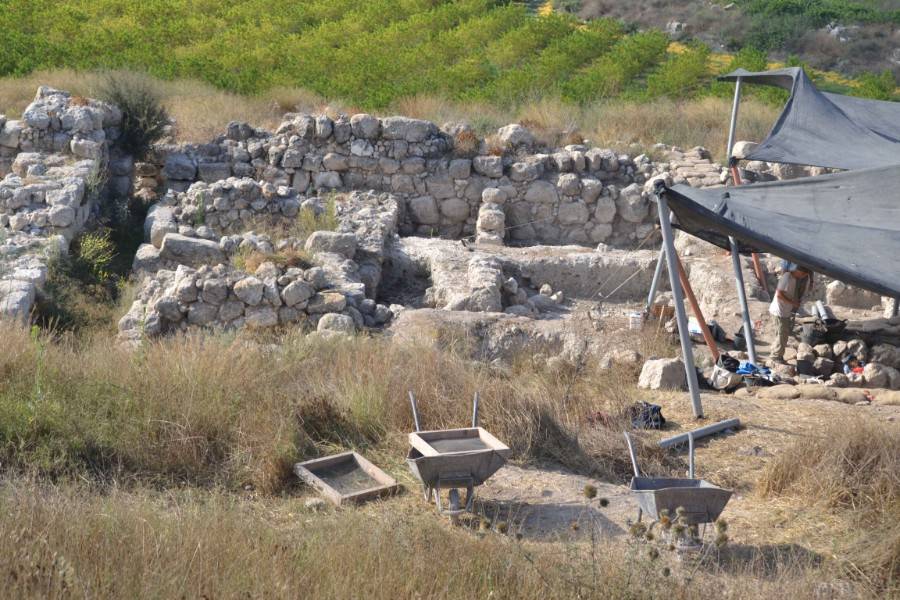
by Gunnar Eng | Jul 29, 2020 | News, News Slider
Among the many additions to Lipscomb this fall will be the Lanier Center for Archaeology. “We’re very excited about it, and I think we will instantly become one of the most nationally recognized archaeology programs in evangelical Christianity,” President Randy Lowry told Lumination Network. Two renowned archaeology scholars, Dr. Steven Ortiz and Dr. Tom Davis, have helped create the new Lanier Center, at the same time bringing extensive resources and artifacts. Both are joining Lipscomb faculty in August after leaving Southwestern Baptist Theological Seminary in Fort Worth, Texas. “They will be bringing with them a 6,000-volume library, which will be a wonderful resource to have at our disposal, and will also be bringing 70 or 80 cases of archeological artifacts, so we can display those in some appropriate way as the year goes on,” Lowry said. The Lanier Center for Archaeology has plans to offer a Ph.D. in archaeology of the Ancient Near Middle East and a master’s in Biblical Studies beginning in January. The approval for the new M.A. and Ph.D. programs is still pending from the Southern Association of Colleges and Schools Commission on Colleges (SASCOC). “Right now, it will start as these two major programs, but as we start to collaborate and learn of the richness that’s here at Lipscomb, we will be able to project future collaborations with other programs that are already here,” Ortiz said. “Our hope is that this will expand into the undergraduate level, perhaps starting with a minor in Biblical Archaeology, and then hopefully expand to a major, as Lipscomb expands its offerings and reach in that way,” Davis said. Students also will be able...
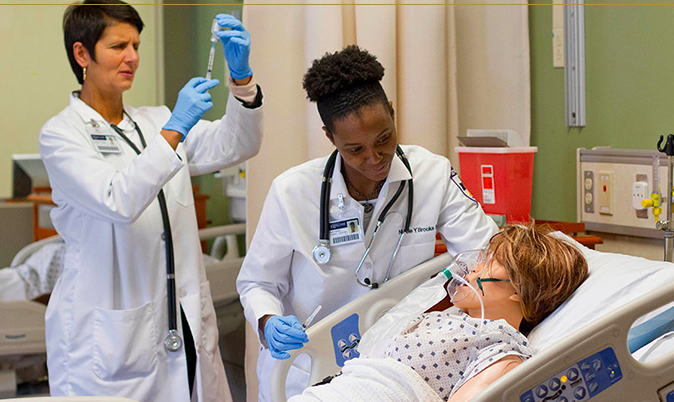
by Gunnar Eng | Jul 23, 2020 | COVID-19, News, News Slider, Uncategorized
Lipscomb’s nursing program, always reliant on physical interaction and hands-on experiences in the past, had to adapt dramatically when the school switched to virtual learning. The pandemic that mandated virtual learning also caused problems in terms of the opportunities for nursing students. “Many clinical partners, around the same time Lipscomb decided to switch to virtual learning, also decided to no longer let students into their facilities,” said Dr. Chelsia Harris, the program’s executive director. “The rationale was to conserve their personal protection equipment, or PPE’s, for essential workers that absolutely needed them.” “It was challenging for me to finish online in the spring, seeing a lot of cool things in my clinicals (at Vanderbilt Trauma Unit), but was only able to go twice before everything started shutting down,” said McKenzie Allen, a senior. Despite many clinical partners and direct physical interaction being cut off, the nursing program made successful adaptations, according to Harris. “We have such incredible faculty and staff that worked really hard to work with some of the vendors in a virtual capacity, and were able to launch a high-fidelity type virtual simulation,” she said. “Some of the simulations are so realistic, and actually have students think more critically than what you thought you would even imagine comparatively to bedside with a real patient.” “The Tennessee State Board of Nursing as well as our national accreditation body were in full support of the utilization of virtual simulations as long as students were able to meet outcomes,” Harris said. The sudden shift to isolation for students and faculty did cause adjustment, according to Harris. “It was gut-wrenching to...






